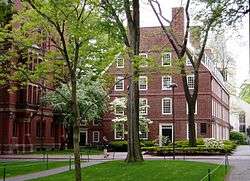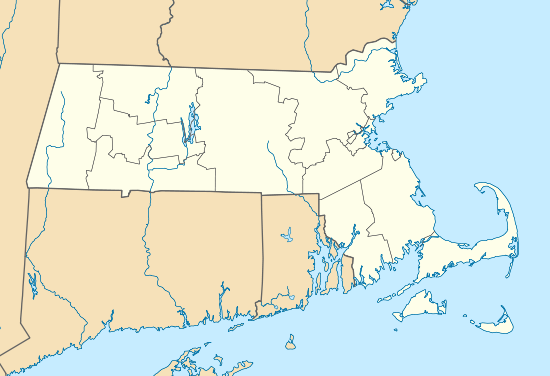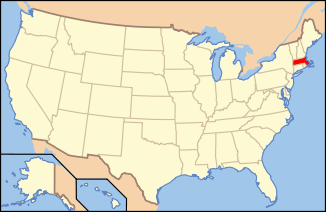Massachusetts Hall (Harvard University)
Massachusetts Hall is the oldest surviving building at Harvard College, the first institution of higher learning in the British colonies in America, and second oldest academic building in the United States after the Wren Building at the College of William & Mary.[2][3] As such, it possesses great significance not only in the history of American education but also in the story of the developing English Colonies of the 18th century. Massachusetts Hall was designed by Harvard Presidents John Leverett and his successor Benjamin Wadsworth. It was erected between 1718 and 1720 in Harvard Yard. It was originally a dormitory containing 32 chambers and 64 small private studies for the 64 students it was designed to house. During the siege of Boston, 640 American soldiers took quarters in the hall. Much of the interior woodwork and hardware, including brass doorknobs, disappeared at this time.
Massachusetts Hall, Harvard University | |
 Massachusetts Hall, May 2005 | |
  | |
| Location | Cambridge, Massachusetts |
|---|---|
| Coordinates | 42°22′27.98″N 71°7′5.82″W |
| Built | 1718–1720 |
| Architect | John Leverett |
| Architectural style | Georgian |
| Part of | Old Harvard Yard (ID73000287) |
| NRHP reference No. | 66000769[1] |
| Significant dates | |
| Added to NRHP | October 15, 1966 |
| Designated NHL | October 9, 1960 |
| Designated CP | February 6, 1973 |
While designed as a residence for students, the building has served many purposes through the years. After Thomas Hollis donated a quadrant and a 24-foot telescope in 1722, for example, the building housed an informal observatory.
Currently, the President of the University, Provost, Treasurer, and Vice Presidents have offices that occupy the first two floors and half of the third. Freshmen reside in the fourth floor.
Massachusetts Hall, as Harvard's oldest extant dormitory, has housed many influential people. Founding fathers who lived in Massachusetts Hall include John Adams, John Hancock, Samuel Adams, Elbridge Gerry, and James Otis. Members of the Wigglesworth, Weld, Thayer, Eliot, and Lowell families (among others), whose names now grace other dormitories, also lived in Massachusetts Hall. More recent notable residents of Massachusetts Hall include Alan Jay Lerner, Elliot Richardson, John Harbison, and Jeff Schaffer.[4]
See also
References
- "National Register Information System". National Register of Historic Places. National Park Service. January 23, 2007.
- "The Critical Mass. (Hall)", The Crimson, April 5, 2007
- The other, the Wren Building at the College of William and Mary, has been destroyed by fire three times, and rebuilt.
- Source: Dorm History Search at http://hcs.harvard.edu/~dorms/ Archived 2005-08-28 at the Wayback Machine
